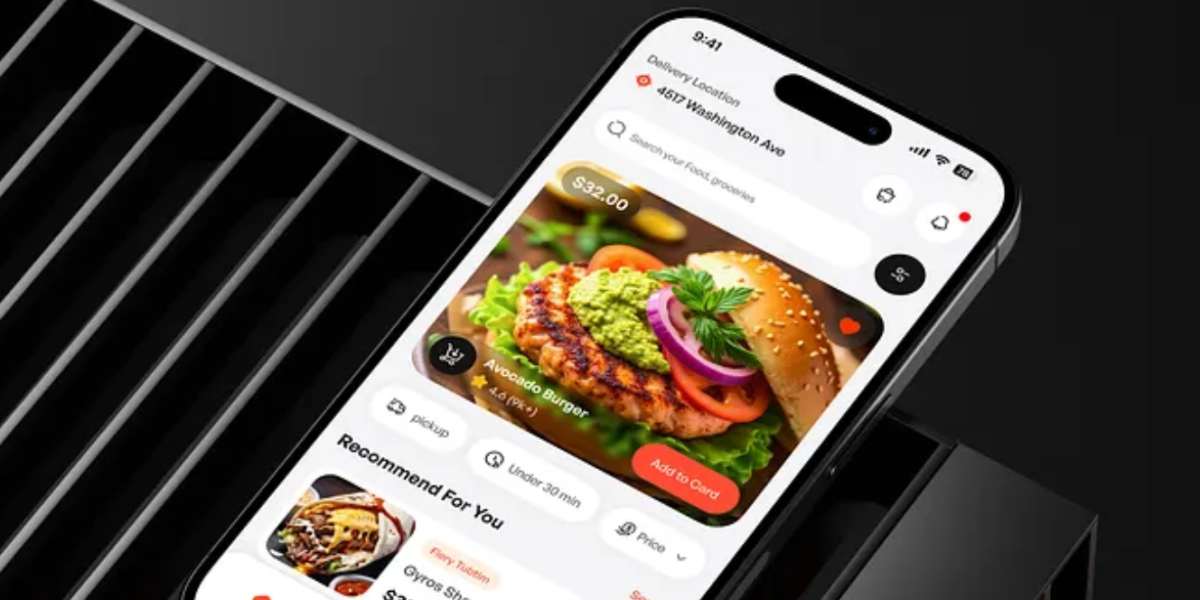In today’s digital-first world, food delivery apps are transforming the way people dine. From ordering lunch at work to midnight cravings at home, users rely on food delivery apps for speed, convenience, and reliability. However, with the growing popularity of these apps comes the critical need for robust security features. Security isn’t just a backend concern anymore—it’s central to user trust, data protection, and long-term success.
If you’re planning to launch a new app or upgrade an existing one, working with a trusted Food delivery App Development Company ensures your platform is not only feature-rich but also fortified against cyber threats.
Let’s explore the key security features every food delivery app must implement to ensure safety and compliance in 2025.
1. User Authentication & Authorization
Strong user authentication is the first line of defense in any mobile application. For food delivery apps, this includes both customers and vendors. Authentication features such as:
-
Two-Factor Authentication (2FA)
-
Biometric Authentication (Face ID, Fingerprint)
-
OAuth-based Login (Google, Apple, Facebook)
These help prevent unauthorized access and reduce the chances of identity theft. Pairing this with role-based authorization ensures that users only access the features meant for them.
2. End-to-End Data Encryption
When users input personal details, payment information, or addresses, this data must be encrypted during transit and storage. End-to-end encryption (E2EE) ensures that:
-
Data is scrambled during transmission.
-
Only the intended recipient can decrypt and read the data.
-
Even if intercepted, sensitive data remains unreadable.
SSL/TLS protocols should be implemented to protect the communication between the app, server, and payment gateways.
3. Secure Payment Gateway Integration
Payment processing is one of the most sensitive functions in a food delivery app. A secure PCI-DSS-compliant payment gateway ensures that credit/debit card details are handled according to global standards. Key features include:
-
Tokenization (converting card data into a secure token)
-
CVV verification
-
3D Secure Authentication
Collaborating with a reliable Food delivery App Development Company helps integrate top-tier payment solutions like Stripe, PayPal, or Razorpay safely and seamlessly.
4. Data Privacy Compliance (GDPR, CCPA)
Regulations such as GDPR (General Data Protection Regulation) and CCPA (California Consumer Privacy Act) mandate businesses to handle customer data with transparency. Your app must:
-
Obtain explicit user consent for data collection.
-
Offer options to delete or download user data.
-
Maintain clear privacy policies.
Ignoring these could result in hefty penalties and damage to your brand reputation.
5. Real-Time Fraud Detection & Monitoring
As food delivery platforms grow, so do fraudulent activities. Implementing machine learning algorithms for real-time fraud detection can help detect anomalies such as:
-
Unusual order patterns
-
Account takeovers
-
Suspicious payment attempts
A dedicated Food delivery App Development Company can integrate intelligent fraud detection systems that evolve with time, keeping threats at bay.
6. Secure APIs
APIs (Application Programming Interfaces) allow various modules—restaurants, riders, and users—to communicate. However, unsecured APIs are a major vulnerability. To avoid this:
-
Use OAuth 2.0 and API key management
-
Implement Rate Limiting to prevent DDoS attacks
-
Regularly audit third-party APIs
Strong API security ensures that no unauthorized party can manipulate or intercept data through these endpoints.
7. Regular Security Audits & Penetration Testing
Security is not a one-time task. Continuous monitoring and testing are essential. Professional developers carry out:
-
Vulnerability assessments
-
Penetration testing
-
Code reviews and compliance checks
These proactive practices uncover hidden threats and keep your food delivery app resilient against evolving cybersecurity risks.
8. Device & Session Management
Users often use multiple devices to access your app. Secure session management includes:
-
Auto-logout on inactivity
-
Multi-device tracking
-
Session timeouts and re-authentication
These prevent unauthorized usage and reduce the risks associated with stolen or lost devices.
9. Admin Panel Security
While the customer-facing side is crucial, the admin dashboard is just as important. Admins manage orders, access customer data, and oversee vendor activities. To secure this:
-
Use Multi-Level Authentication
-
Restrict access based on IP or geography
-
Maintain detailed log activity records
Partnering with a professional Food delivery App Development Company ensures that both user and admin-facing modules receive equal security attention.
10. Push Notification Security
Push notifications can carry sensitive data such as order status or promotions. These should be:
-
Encrypted
-
Authenticated
-
Filtered to avoid phishing attempts
Ensuring only trusted sources can trigger these messages adds another layer of safety for users.
11. Secure Cloud Infrastructure
Many food delivery apps are hosted on cloud platforms like AWS, Azure, or Google Cloud. Secure cloud architecture involves:
-
Firewalls and Intrusion Detection Systems (IDS)
-
Multi-zone redundancy
-
Regular backups and disaster recovery protocols
A dependable Food delivery App Development Company will design your cloud infrastructure to maximize uptime and minimize risks.
12. Bug Bounty & Responsible Disclosure Programs
Encouraging ethical hackers to report vulnerabilities through a bug bounty program adds a crowdsourced layer of protection. This practice:
-
Increases trust among users
-
Keeps your app ahead of threats
-
Helps avoid PR disasters caused by undetected vulnerabilities
Platforms like HackerOne or Bugcrowd can facilitate these initiatives effectively.
Conclusion
Food delivery app users entrust your platform with sensitive information—from home addresses to payment credentials. Security is not optional—it’s foundational. By implementing these key security features, you not only protect users but also build lasting trust, minimize legal exposure, and future-proof your business.
If you’re looking to build a secure, scalable, and user-friendly app, partner with an experienced Food delivery App Development Company like A3Logics. With deep expertise in mobile app security, cloud architecture, and user experience design, A3Logics delivers future-ready food delivery apps tailored for modern demands.












